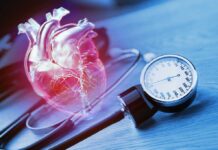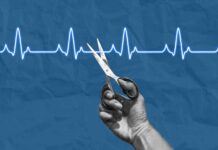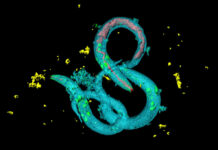
Your morning coffee ritual might be quietly sabotaging your mental peace, and the latest research reveals exactly when that comforting cup crosses the line into anxiety territory.
Story Highlights
- High caffeine intake above 400mg daily significantly increases anxiety risk in healthy individuals
- Genetic differences in adenosine receptors determine who experiences caffeine-induced anxiety
- Moderate coffee consumption may trigger anxiety only in predisposed individuals
- Regular coffee drinkers develop tolerance that reduces anxiety-inducing effects over time
The Dose That Changes Everything
Recent meta-analyses have pinpointed the threshold where coffee transforms from morning companion to anxiety trigger. Consuming more than 400 milligrams of caffeine daily—roughly four cups of coffee—significantly elevates anxiety risk even in people without existing mental health conditions. This finding settles decades of conflicting research about coffee’s impact on our psychological well-being.
The research reveals a clear dose-response relationship that many coffee lovers ignore. While low doses under 150 milligrams produce minimal anxiety effects for most people, the moderate range of 150-400 milligrams creates a gray zone where individual susceptibility becomes the determining factor.
Your Genes Hold the Key
Scientists have discovered that genetic variations in adenosine receptors explain why some people can drink espresso before bed while others get jittery from half a cup. These genetic polymorphisms influence how quickly your body processes caffeine and how intensely you experience its anxiety-provoking effects. This breakthrough explains the puzzling inconsistency in earlier studies that failed to account for genetic differences.
The implications extend beyond simple coffee tolerance. People with certain genetic profiles may experience heightened anxiety from relatively small amounts of caffeine, while others remain unaffected even at higher doses. This genetic factor represents a missing piece in understanding why caffeine affects each person so differently.
Watch: The coffee wasn’t the actual problem. #anxiety – YouTube
The Tolerance Factor Changes Everything
Regular coffee consumption creates a biological adaptation that most casual drinkers never achieve. Your nervous system adjusts to consistent caffeine intake, reducing the anxiety-inducing effects that newcomers experience. This tolerance mechanism explains why longtime coffee drinkers rarely experience the jitters that plague occasional consumers who suddenly increase their intake.
However, this tolerance comes with a caveat. When regular consumers suddenly stop drinking coffee, they may experience withdrawal-related anxiety that can be more intense than their original caffeine-induced symptoms. The body’s adaptation process works both ways, creating dependence that many people mistake for coffee’s inherent calming effects.
Many people have problems with insomnia, anxiety, and become edgy due to coffee. Quitting coffee cold turkey gives me terrible withdrawal. Why bother with coffee, Dr. Peat?
“That type of reaction is because of the lack of a properly coffee-consuming technology. Like the Japanese… https://t.co/V87jiaQLVt pic.twitter.com/eRhMtJVR6i
— Master Metabolism (@lowmegatron) October 17, 2025
When Coffee Becomes the Enemy
Healthcare providers increasingly recognize caffeine as a significant factor in anxiety management. People with existing anxiety disorders or panic symptoms face elevated risk from even moderate caffeine consumption. The stimulant effects can mimic or amplify anxiety symptoms, creating a cycle where sufferers unknowingly worsen their condition through their daily coffee habit. Clinical guidelines now recommend that individuals prone to anxiety should limit caffeine intake as part of comprehensive treatment approaches.
Sources:
Meta-analysis on caffeine and anxiety risk
Institute for Scientific Information on Coffee research review
Longitudinal review of caffeine’s mental health effects
UCLA Health caffeine and anxiety guidelines
American Psychological Association coffee research
Nature journal caffeine study
American Medical Association caffeine impact analysis


















